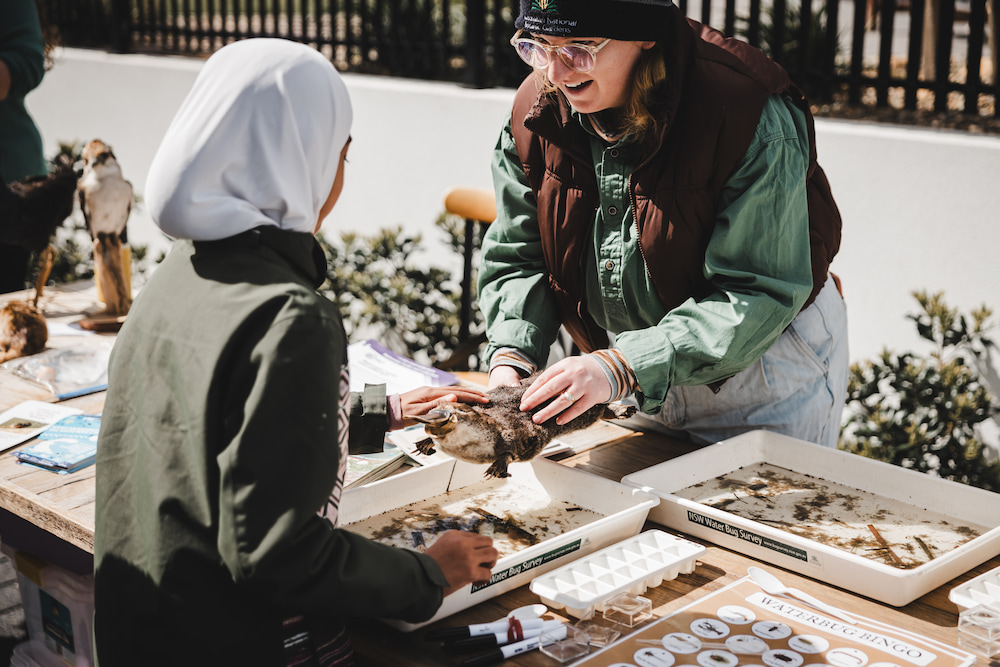Landcarers have long known that connecting with nature is good for our mental and physical health and wellbeing, so much so that Landcare ACT has just completed a two-year Wellbeing through Nature program.
The program offered guided walks through the Botanic Gardens for Darwin’s birthday, and rambles through Lyneham’s commons, wetlands, and microforest; conservation activities – protecting habitats, restoring waterways, and planting trees; and therapeutic horticulture – tending native vegetation and food gardens. The program was developed with the mental health service Wellways, and funded by the ACT Government.
“We believe that connecting with nature and our community is essential for creating a healthier, happier, and more sustainable world,” said Sally Holliday, the program’s co-ordinator. “We know that nature connection is good not only for our physical health, but also for our mental health and overall wellbeing.”
While the Wellbeing through Nature program has come to a close, there are opportunities to connect with and care for country throughout the year.
There are more than 100 volunteer Landcare groups across the ACT, engaged in a wide variety of activities, from regular weeding and planting parties to platypus surveys, grassland restoration projects, and biodiversity surveys. Visit Landcare ACT’s website to find a Landcare group near you and get involved.
“As the effects of climate change become more obvious and present in our daily lives, more people are finding that taking direct and meaningful action can be important to keep eco-anxiety at bay,” said Karissa Preuss, Landcare ACT’s CEO.
“Joining a Landcare group enables connections with like-minded people, and an opportunity to work together to protect and restore habitat for our local wildlife.”
Much of the population of the ACT lives in an urban area, and the “Garden City” urban layout means that suburbs provide critical ecological functions. Twenty-six threatened species are found within the city and immediate surrounds, including the swift parrot, regent honeyeater, and pink-tailed worm lizard, as well as many other rare and endangered species such as the gang-gang, grassland earless dragon, Perunga grasshopper, golden sun-moth, and Latham’s snipe.
“Landcarers across the ACT are working together to take action towards conserving and restoring habitat and connectivity within our urban footprint, which is essential for the survival of many of these threatened species,” Ms Preuss said.
For more information and the full calendar of events, go to landcareact.org.au/calendar.



